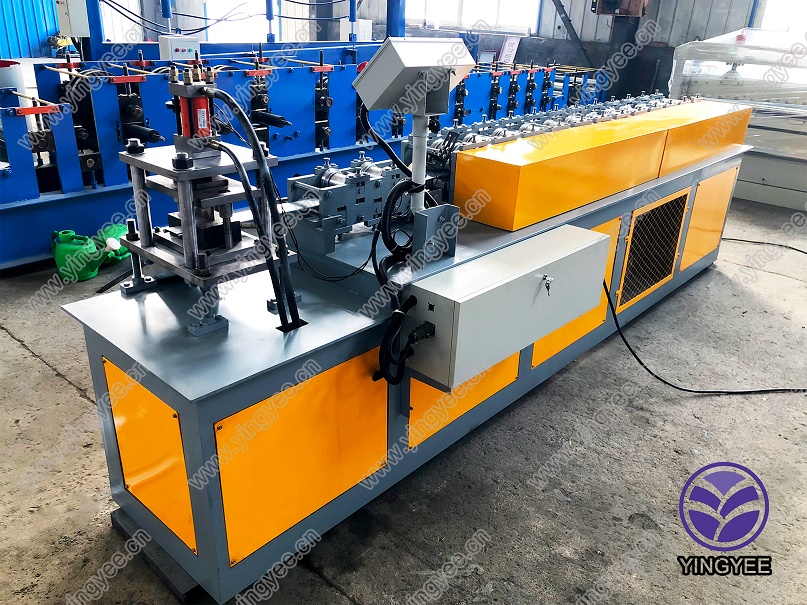
The Evolution and Importance of Roof Tile Machines
In the realm of construction and architecture, the significance of high-quality roofing cannot be overstated. Roof tiles, often seen as mere aesthetic elements, serve as the first line of defense against weather elements, enhancing durability and energy efficiency. The advancement of technology has ushered in a new era for roof tile production, epitomized by the emergence of roof tile machines. This article delves into the evolution of these machines, their benefits, and their impact on the construction industry.
Historical Context
The production of roof tiles dates back to ancient civilizations, where clay tiles were hand-shaped and sun-dried. While effective, this method was labor-intensive and time-consuming. As industries evolved, so did the machinery used in tile production. The late 19th and early 20th centuries marked significant advancements with the introduction of mechanical presses, which allowed for the mass production of tiles. However, these early machines were limited in their capabilities and often produced inconsistent quality.
Modern Roof Tile Machines
Today, roof tile machines are sophisticated pieces of equipment that utilize cutting-edge technology to produce a wide variety of roof tiles efficiently. These machines can create tiles in various materials, including clay, concrete, and even recycled materials, catering to diverse architectural needs.
Modern roof tile machines come equipped with features such as automated feeding systems, precision molds, and advanced control systems that allow for intricate designs. They can produce tiles that mimic the appearance of traditional materials while offering enhanced durability and insulation properties. The versatility of these machines not only expands design possibilities but also streamlines the production process, leading to significant cost savings.
Benefits of Roof Tile Machines
1. Efficiency and Consistency One of the most significant advantages of roof tile machines is their ability to produce large quantities of tiles with minimal human intervention. This not only reduces labor costs but also ensures a higher level of consistency in size, shape, and quality. Manufacturers can meet market demands more effectively, reducing lead times and enhancing customer satisfaction.

2. Customization With advanced technology, modern roof tile machines allow for extensive customization. Manufacturers can offer a variety of colors, shapes, and textures, which appeals to homeowners and architects seeking unique designs. This ability to customize also helps manufacturers differentiate themselves in a competitive market.
3. Sustainability As the construction industry moves towards more sustainable practices, roof tile machines are adapting accordingly. Many modern machines can utilize recycled materials, minimizing waste. Furthermore, the energy-efficient production processes contribute to a lower carbon footprint, aligning with global sustainability goals.
4. Enhanced Quality Control Advanced manufacturing technologies integrated into roof tile machines enable manufacturers to implement rigorous quality control measures. Automated inspection systems can identify defects in real-time, ensuring that only the highest quality products make it to market. This not only enhances consumer trust but also reduces the costs associated with returns and repairs.
Impact on the Construction Industry
The impact of roof tile machines on the construction industry is profound. By improving the efficiency and quality of tile production, these machines have made it possible to meet the increasing demands of modern construction projects. Additionally, the introduction of more durable materials means that buildings can withstand harsher weather conditions, ultimately leading to longer-lasting structures.
Moreover, as green building practices gain traction, the ability to produce eco-friendly roof tiles becomes a crucial factor. Architects and builders are increasingly choosing sustainable materials, and roof tile machines are at the forefront of this evolution, providing the necessary technology to support these initiatives.
Conclusion
Roof tile machines have revolutionized the way roof tiles are produced, offering efficiency, customization, and sustainability. As the construction industry continues to adapt to changing consumer demands and environmental considerations, these machines will play a vital role in shaping the future of roofing. Their ability to produce high-quality tiles quickly and cost-effectively ensures that they will remain an indispensable aspect of modern construction for years to come. In an industry where durability and aesthetics are paramount, the advancement of roof tile machines stands as a testament to the synergy between technology and craftsmanship.